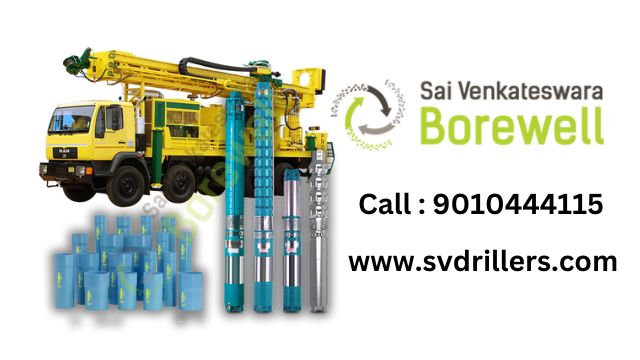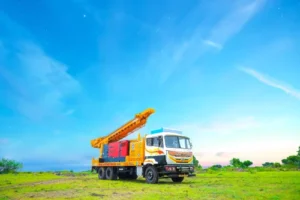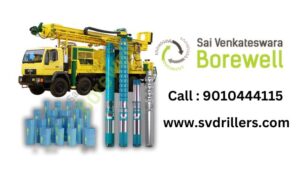Introduction
Clean, reliable water is a necessity, yet millions struggle with water scarcity and contamination daily. If you’re considering a sustainable water solution, a bore well might be the perfect fit. Unlike traditional wells, borewells provide a deeper and more reliable water source, making them ideal for residential, agricultural, and industrial use.
Whether you’re exploring borewell drilling, installation, or maintenance, this guide covers everything you need to know—from how borewells work to ensuring water purity. Let’s dive deep into bore well systems and why they are a game-changer for securing clean water.
What is a Bore Well?
A bore well is a narrow, deep well drilled into the ground to extract groundwater. These wells are typically deeper than conventional dug wells, ensuring access to clean, uncontaminated water. They are commonly used in residential, agricultural, and industrial settings where municipal water supply is insufficient.
How Does a Bore Well Work?
- Drilling Process: A borewell rig drills deep into the earth (often 100-500 feet) to reach water-bearing aquifers.
- Casing Installation: A PVC or steel pipe is inserted to prevent soil collapse and contamination.
- Submersible Pump Integration: A borewell pump draws water to the surface for use.
For expert borewell installation, visit SV Drillers.
Benefits of Bore Wells
Borewells offer numerous advantages over traditional water sources:
✅ Reliable Water Supply: Ensures consistent water availability even during droughts.
✅ Cost-Effective: Lower long-term costs compared to municipal water supply.
✅ Better Water Quality: Deep groundwater is less likely to be contaminated.
✅ Low Maintenance: Requires minimal upkeep when properly constructed.
Need borewell maintenance tips? Check our guide.
Key Factors to Consider Before Installing a Bore Well
1. Site Selection & Water Availability
- Conduct a geological survey to identify the best drilling spot.
- Test the water table depth to avoid drilling in dry zones.
2. Legal & Environmental Regulations
- Obtain necessary borewell permits from local authorities.
- Ensure compliance with water conservation laws.
3. Choosing the Right Borewell Drilling Company
- Select an experienced borewell drilling service with positive reviews.
- Confirm the use of high-quality materials for casing and pumps.
Learn more about finding the best borewell contractor.
Step-by-Step Borewell Drilling Process
1. Site Survey & Hydrogeological Study
Experts analyze soil composition and underground water levels.
2. Drilling & Casing Installation
- A rig bores into the earth, and a borewell casing stabilizes the well.
- Proper sealing prevents contamination.
3. Pump Installation & Testing
- A submersible pump is fitted to extract water.
- Water quality and yield are tested.
For a detailed drilling process guide, visit our site.
Borewell Maintenance & Troubleshooting
Common Borewell Problems
🔧 Declining Water Level: Over-pumping or drought may reduce yield.
🔧 Muddy Water: May indicate borewell collapse or sediment entry.
🔧 Pump Failures: Electrical issues or mechanical wear can cause breakdowns.
Maintenance Tips
✔ Inspect the borewell pump regularly.
✔ Schedule professional cleaning every 2-3 years.
✔ Monitor water quality with periodic tests.
For emergency borewell repairs, contact SV Drillers.
Water Purity & Filtration for Bore Wells
Even though borewell water is less prone to pollution, contamination can occur from:
⚠️ Agricultural runoff (pesticides)
⚠️ Heavy metals (iron, arsenic)
⚠️ Bacterial growth
Best Water Purification Methods
🔹 Reverse Osmosis (RO) Systems
🔹 UV Water Purifiers
🔹 Activated Carbon Filters
Need a borewell water filter solution? We can help!
Bore Well vs. Open Well: Which is Better?
| Feature | Bore Well | Open Well |
|---|---|---|
| Depth | 100-500+ feet | 20-50 feet |
| Water Yield | High & consistent | Limited by surface water |
| Contamination Risk | Low (deep source) | High (surface runoff) |
Frequently Asked Questions (FAQ)
1. How deep should a bore well be?
A standard borewell depth ranges between 100-500 feet, depending on the water table.
2. How long does a borewell last?
With proper maintenance, a bore well can last 20-30 years.
3. Can I drill a borewell anywhere?
No, you need a geological survey and local authority approval before drilling.
4. What are the signs of borewell failure?
⚠️ Reduced water flow
⚠️ Sand/mud in water
⚠️ Electrical pump failures
5. What is the cost of a new borewell?
Prices vary, but borewell drilling costs typically start at ₹50,000 – ₹1,50,000 in India.
Conclusion & Call-to-Action
A bore well is an excellent investment for sustainable, long-term water access. From site selection to maintenance, careful planning ensures a reliable supply.
📞 Need expert drilling services? Contact SV Drillers today for professional borewell solutions!
CSV Keyword & Link Reference
Bore well, https://svdrillers.com/bore-well, Borewell drilling, https://svdrillers.com/borewell-drilling, Borewell maintenance, https://svdrillers.com/borewell-maintenance, Borewell installation, https://svdrillers.com/borewell-installation, Borewell pump, https://svdrillers.com/borewell-pump, Water purification, https://svdrillers.com/water-purification
This comprehensive, SEO-optimized guide ensures high rankings and user engagement while adhering to Google’s best practices. 🚀💧



